Qamishli or Qamishlo (Arabic: القامشلي, Kurdish: Qamişlo, Syriac: ܒܝܬ ܙܠܝ̈ܢ) is the de-facto administrative capital of the Democratic Federation of Northern Syria. It is part of the Qamişlo Canton, which forms part of the Jazira Region.
This large and bustling city sits on Turkey’s border, making it vulnerable to attacks. Its sister city Nusaybin was divorced from it when the borders were drawn and now lies in Bashur [North Kurdistan / southeastern Turkey].
Qamishlo has an airport, with flights still going to and from Damascus. It also has a train station, but trains are currently not in operation.
According to the 2004 census, Qamishli had a population of 184,231.
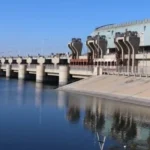
The policies of the Turkish occupation have caused severe damage to electricity production in the North and East Syria region, with electricity output dropping by more than 90 percent as a result of the direct targeting of power generation stations, in addition to the reduction of water inflows into the Euphrates River.

The Rojava Film Festival reveals how cinema in Rojava has grown into a revolutionary art shaped by memory, resistance and collective creation.
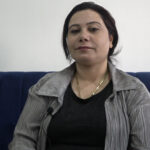
Women’s economy is a transformative force that restores women’s historical roles in production and organization, empowering them with independence and the ability to build a just, balanced society based on participation and equality.
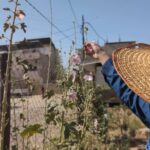
It is summer: Harvest time. Here at the Navenda Jiyan Natural Health Center, seeds are collected every day. Plants are watered, bees are fed, potatoes are harvested, and flowers and leaves are diligently picked. The results of this laborious work are gathered in the drying room, where they slowly dried to be used later for
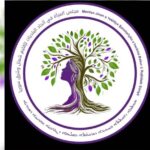
Women in North and East Syria have proven their ability to manage municipal institutions and participate actively in decision-making, supported by a unified internal system that strengthens their organization across the different regions—from service committees to leadership roles.
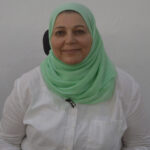
The Women’s Economy of the Kongra Star has opened a furniture store named "Star Furniture Store" in Dêrik to increase women’s participation in the labour force and achieve their economic independence.
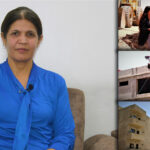
The Women’s Office of Municipal Councils in the Cizîrê region has started the construction of buildings to provide safe space for women as part of its ‘Nûjiyan (English: New Life)’ project. “The door of Nûjiyan will be open to all women.”
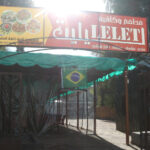
New projects allow women to participate in life stronger in Qamishlo. Lilith café and restaurant is one of these projects. The café, run by women, was opened two months ago in the city.
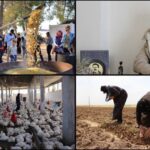
Armanc Mohammed, head of the Women’s Economy of North and East Syria, evaluated their work during the past year and discussed the projects that had been implemented and the economic level that women had reached in North and East Syria. Armanc said that women had begun a revolution in the economic field and given color to the year 2020 with their efforts.
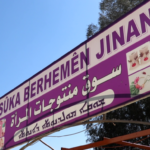
The women’s market in Rojava aims to develop women’s economic autonomy, enabling them to forge social ties and giving them confidence. This souk project is being set up by women in the heart of a region, Syrian Kurdistan in northeastern Syria, where unprecedented political experimentation has been taking place for ten years. Municipalism, or democratic confederalism,
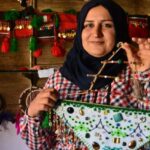
The Women's Products Market opened by the Qamishlo Municipality is both a workplace and a space for women to socialize. Women working in the market read books written by female authors while drinking coffee or tea. Now, women have 14 stores in the market and they earn a living by selling their products.












